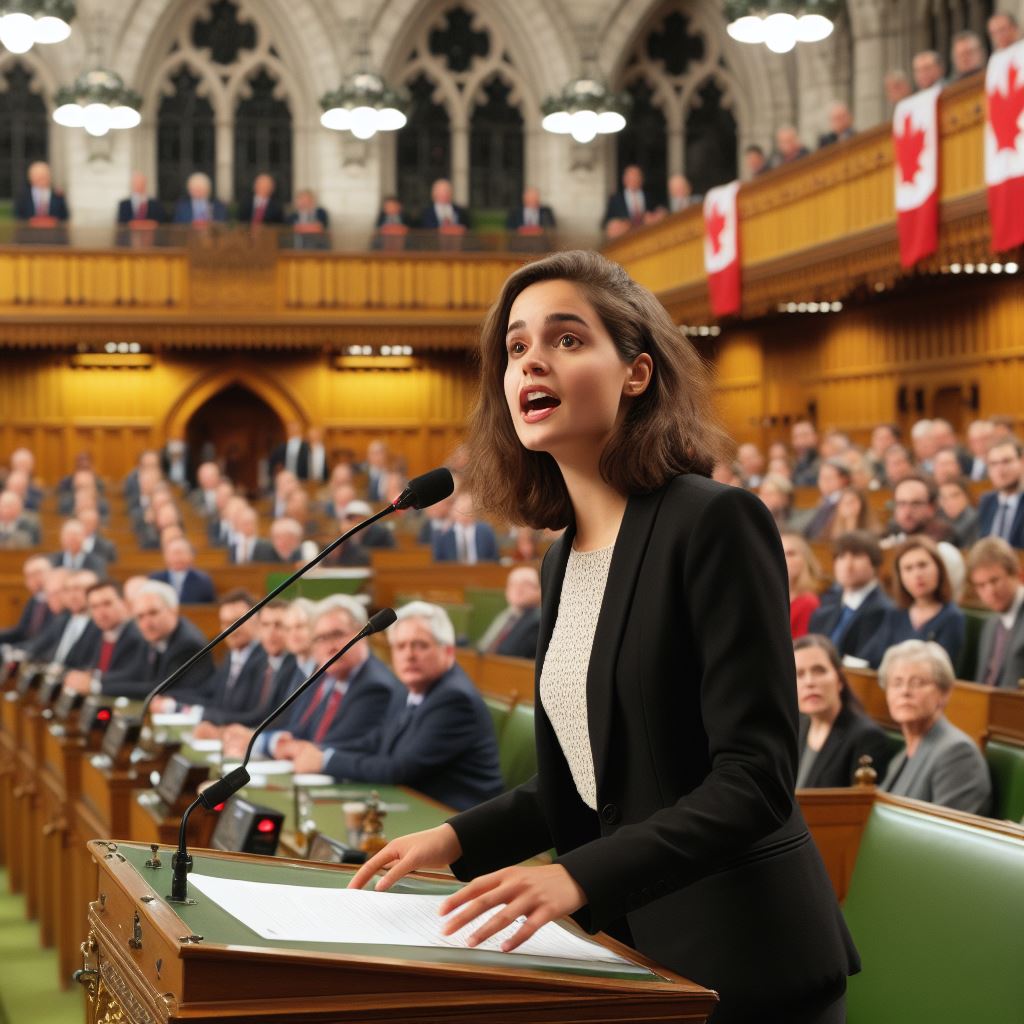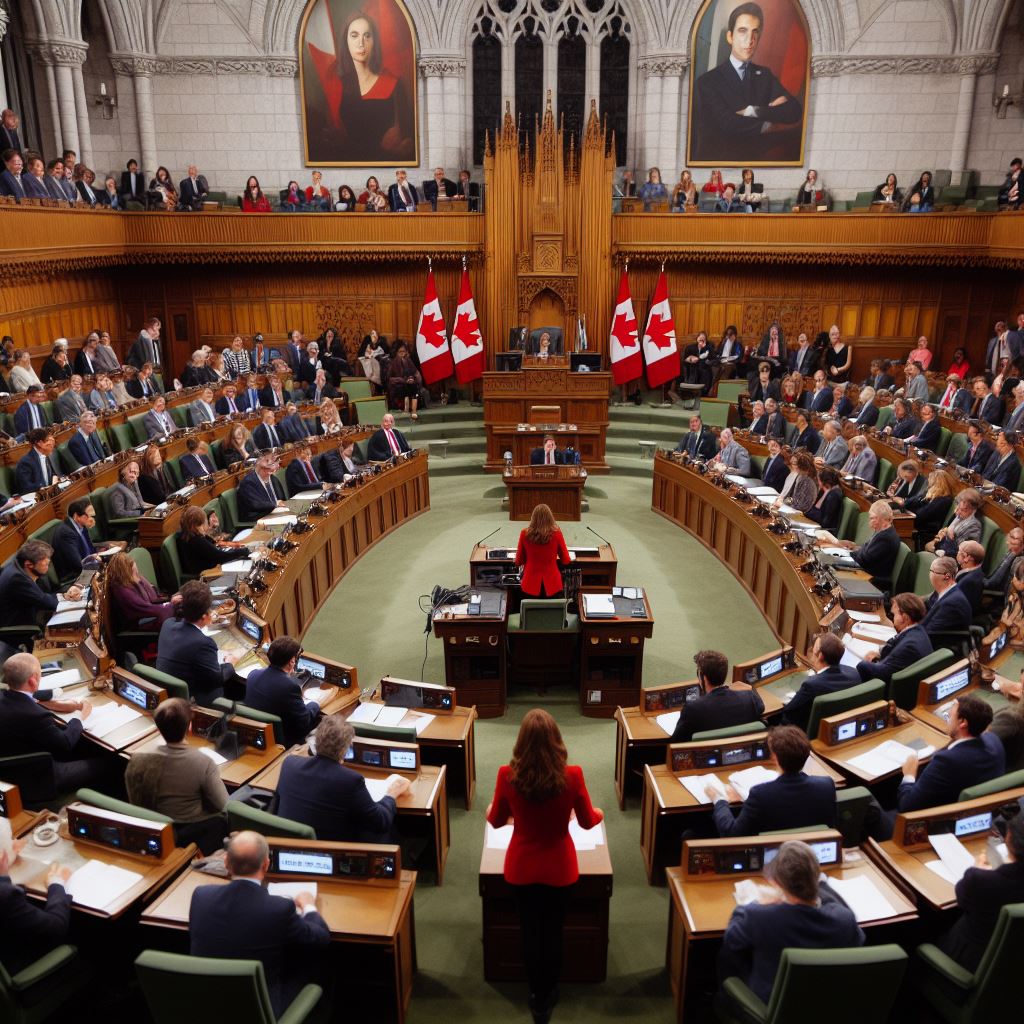Introduction
Public servants play a crucial role in policy making, shaping the laws and regulations that govern our society.
Their responsibilities include researching, analyzing data, and providing expert advice to policymakers.
Public servants bridge the gap between political leaders and the practical implementation of policies, ensuring informed decision-making.
They contribute to policy formulation, implementation, and evaluation, translating political objectives into actionable plans.
With their institutional knowledge and expertise, public servants facilitate the development of effective and sustainable policies, addressing societal needs and challenges.
Their dedication to public service enhances governance, fostering transparency, accountability, and the overall well-being of communities.
Imagine a world without public servants – chaos, confusion, and a lack of direction would prevail.
Definition and Overview of Public Servants
Define what public servants are and their significance in government
In every democratic government, public servants play a crucial role in policy making and governance.
Public servants are individuals employed in the service of the government to serve the public interest.
They include civil servants, elected officials, police officers, firefighters, and other public sector professionals.
Public servants are the backbone of government institutions, ensuring the smooth functioning of public services and administration.
They are essential in implementing policies and programs that deliver services and benefits to citizens.
Without public servants, governance would be ineffective, leading to societal disorder and public dissatisfaction.
Discussion of the various roles and responsibilities of public servants
Policy Development and Analysis
- Public servants contribute to the development and analysis of policies through research, data analysis, and consultation.
- They provide expert advice to government officials, contributing to evidence-based decision making.
- Public servants ensure that policies align with the government’s vision and objectives.
Implementation and Execution
- Public servants are responsible for translating policies into action plans and implementing them effectively.
- They coordinate with different departments and agencies to ensure the successful implementation of policies.
- Public servants also monitor and evaluate the progress of policy implementation, making necessary adjustments as required.
Public Service Delivery
- Public servants are entrusted with delivering essential services to citizens, such as healthcare, education, and social welfare.
- They ensure that public services are accessible, efficient, and of high quality.
- Public servants work towards improving service delivery and addressing citizens’ needs and concerns.
Regulation and Enforcement
- Public servants enforce laws, regulations, and policies to maintain order and protect public interests.
- They monitor compliance, investigate violations, and take appropriate actions to ensure public safety.
- Public servants collaborate with law enforcement agencies and judicial authorities to uphold justice and legality.
Public Engagement and Consultation
- Public servants facilitate dialogue and engagement with citizens, promoting transparency and inclusion in decision making.
- They conduct public consultations and gather feedback to incorporate public perspectives into policy development.
- Public servants act as a bridge between the government and the people, representing their interests and concerns.
Economic and Social Development
- Public servants contribute to economic and social development by formulating strategies and programs.
- They strive to create an enabling environment for business growth, employment generation, and poverty reduction.
- Public servants implement initiatives to promote sustainable development and improve the overall well-being of society.
Public Accountability
- Public servants are accountable for their actions and decisions, ensuring transparency and integrity in government processes.
- They provide reports, audits, and assessments to evaluate the effectiveness and efficiency of public programs.
- Public servants are accountable to the government, the public, and the ethical standards of their profession.
Basically, public servants are essential actors in policy making and governance.
They bear significant responsibilities in developing, implementing, and evaluating policies that impact public welfare.
Their expertise, commitment, and dedication contribute to the efficient functioning of government institutions.
Public servants play a vital role in shaping the present and future of societies, ensuring the well-being and progress of nations.
Importance of Public Servants in Policy Making
The critical role of public servants in formulating and implementing policies
- Public servants play a crucial role in policy making as they are responsible for researching, analyzing, and developing policy proposals.
- They gather data, conduct studies, and assess the impact of potential policies, ensuring evidence-based decision making.
- Public servants also collaborate with stakeholders, seek their input, and engage in public consultations to understand diverse perspectives.
- They draft policy documents, ensuring clarity, feasibility, and alignment with government objectives and priorities.
- Public servants facilitate the coordination between different government departments and agencies involved in policy implementation.
- They work closely with elected officials, advising them on policy options, risks, and potential trade-offs.
- Public servants also assist in communicating policies, making sure they are well understood by the public and relevant stakeholders.
- They monitor policy implementation, track progress, and identify any necessary adjustments or modifications.
- Public servants play a key role in evaluating the effectiveness of policies, assessing their impact on society, and suggesting improvements.
How public servants provide expertise and knowledge to policymakers
- Public servants possess specialized knowledge, expertise, and experience in their respective fields.
- They provide policymakers with accurate information, reliable data, and in-depth analysis to facilitate informed decision making.
- Public servants offer insights into complex issues, helping policymakers understand the implications of their choices.
- They undertake rigorous research, keeping abreast of best practices, emerging trends, and international standards.
- Public servants advise policymakers on the potential risks, challenges, and unintended consequences of different policy options.
- They help policymakers navigate political, economic, and social realities, ensuring policies are realistic and achievable.
- Public servants assist in balancing competing interests, finding common ground, and promoting consensus-building.
- They act as a bridge between the government and external stakeholders, fostering collaboration and partnership.
- Public servants create opportunities for learning and knowledge sharing, promoting evidence-based policy making.
Essentially, public servants play an indispensable role in policy making. Their expertise, knowledge, and dedication are essential in formulating and implementing effective policies.
By conducting thorough research, consulting stakeholders, and providing informed advice to policymakers, public servants contribute to evidence-based decision making.
Through their collaboration with different government departments and engagement with the public, they ensure policies are well-designed, understood, and embraced.
Public servants’ commitment to monitoring policy implementation, evaluating effectiveness, and suggesting improvements helps governments adapt and respond to emerging challenges.
Therefore, recognizing the importance of public servants in policy making is vital for the successful governance of any nation.
Collaboration between Public Servants and Policymakers
Highlighting the importance of effective collaboration and communication between public servants and policymakers
- Public servants and policymakers must collaborate effectively for successful policy-making.
- Collaboration ensures that policies are informed by the expertise and knowledge of public servants.
- Close collaboration fosters a better understanding of policy goals and implementation challenges.
- Effective communication between public servants and policymakers enhances policy outcomes.
- Collaboration helps to bridge the gap between policy formulation and implementation.
- Public servants bring valuable insights into the practical implications of policies.
- Policymakers benefit from the on-the-ground experience and expertise of public servants.
- Collaboration enables policymakers to make informed decisions based on various perspectives.
- Effective collaboration ensures a smoother transition from policy development to implementation.
- Public servants can contribute valuable feedback on the feasibility and impact of proposed policies.
- Policymakers rely on public servants to provide accurate information and data for evidence-based policymaking.
- Collaborative efforts between public servants and policymakers help maintain transparency and accountability.
- Public servants can provide valuable input on the potential implications and unintended consequences of policies.
- Collaboration fosters a sense of shared responsibility and ownership in policy outcomes.
- Effective collaboration ensures policies align with the needs and concerns of the public.
Read: Day in the Life of a Canadian Public Servant

Discussion of how public servants assist policymakers in developing evidence-based policies
- Public servants play a crucial role in collecting and analyzing data to inform policy decisions.
- They conduct research and gather evidence on various policy options and their potential impact.
- Public servants use their expertise to assess the feasibility of proposed policies.
- They consider factors such as cost-effectiveness, public opinion, and ethical implications.
- Public servants provide policymakers with evidence-based recommendations and alternatives.
- They contribute their knowledge of best practices and lessons learned from previous policy implementations.
- Public servants help policymakers identify the potential risks and benefits associated with policy options.
- They assist in evaluating the potential social, economic, and environmental impacts of policies.
- Public servants provide policymakers with insights into the practical challenges of policy implementation.
- They offer input on the capacity and resources required for effective policy execution.
- Public servants collaborate with policymakers to prioritize policy objectives and set realistic targets.
- They ensure that policies are grounded in solid empirical evidence rather than ideological beliefs.
- Public servants help policymakers navigate complex policy landscapes by providing context and analysis.
- They contribute to the design of policy evaluation frameworks to measure the effectiveness of implemented policies.
- Public servants assist in monitoring and reviewing policies to ensure they remain evidence-based and relevant.
In fact, effective collaboration and communication between public servants and policymakers are essential for successful policymaking.
Public servants contribute their expertise, practical insights, and evidence-based recommendations, assisting policymakers in developing informed policies that address societal needs.
Unlock Your Career Potential
Visualize a clear path to success with our tailored Career Consulting service. Personalized insights in just 1-3 days.
Get StartedThis collaborative effort improves policy outcomes and promotes transparency, accountability, and public trust in the policy-making process.
Read: Public Servants: Salary and Benefits in Canada
Gain More Insights: Ethics and Conduct in Public Service
You Might Also Like: Interviewing for a Public Service Position
Examples of Public Servants’ Impact in Policy Making
A. Public servants have a crucial role in policy development and can impact society in various ways. Let us explore some real-world examples:
- During the COVID-19 pandemic, public health officials formulated policies to control the spread of the virus.
- Police officers influence policies related to crime prevention, enforcement, and community engagement.
- Educators and school administrators shape educational policies to improve student outcomes and ensure equal opportunities.
- Social workers advocate for policies that address poverty, child welfare, mental health, and social justice issues.
- Environmental scientists and researchers contribute to policy-making on climate change and conservation efforts.
- Military leaders play a crucial role in formulating defense and national security policies.
- Judges and legal experts influence policymaking through their interpretation of laws and landmark court decisions.
- Civil servants working in regulatory agencies shape policies that ensure consumer protection and industry standards.
- Economists inform policy decisions related to taxation, monetary policies, and economic development.
Public servants have also been instrumental in shaping effective policies, leading to success stories
- Dr. Margaret Chan, the former Director-General of the World Health Organization, played a significant role in developing policies to combat the Ebola outbreak in West Africa.
- The National Aeronautics and Space Administration (NASA) achieved remarkable success in space exploration due to the policy decisions made by its dedicated team of public servants.
- The introduction of the Affordable Care Act in the United States, commonly known as Obamacare, was made possible through the efforts of public servants in the healthcare sector.
- Public servants in countries like Sweden and Denmark have contributed to the development of progressive social policies that prioritize equality and social welfare.
- In India, the implementation of the Right to Information Act, 2005, has improved transparency and accountability in governance, thanks to the efforts of dedicated public servants.
- Public servants in Singapore played a crucial role in transforming the country into a modern metropolis through effective urban planning and sustainable development policies.
- The successful transition of several countries from authoritarian regimes to democratic systems was facilitated by public servants who helped shape inclusive and fair policies.
- The United Nations’ Sustainable Development Goals, which aim to address global challenges, were developed with the input and expertise of public servants from around the world.
- Public servants working in international organizations like the World Bank and the International Monetary Fund have been influential in shaping policies that promote economic growth and poverty reduction.
These examples highlight the significant impact public servants can have in policymaking and the positive changes they can bring to society.
Read: The Role of Public Servants in Canadian Govt
Challenges Faced by Public Servants in Policy Making
Various Challenges Encountered by Public Servants
- Lack of Expertise: Public servants may lack specialized knowledge and skills required for effective policy making.
- Political Interference: Public servants often face pressure from politicians and interest groups to align policies with their agendas.
- Limited Resources: Public servants may struggle with inadequate funding and resources, hindering their ability to develop and implement policies.
- Complex Stakeholder Landscape: Public servants must navigate diverse stakeholder interests and conflicting opinions while formulating policies.
- Public Opinion and Perception: Public servants face the challenge of considering public sentiment and ensuring policies meet citizens’ expectations.
- Time Constraints: Public servants often work under tight deadlines, limiting the thoroughness and effectiveness of policy development processes.
- Legal and Regulatory Frameworks: Complex legal requirements can pose challenges for public servants to craft policies that align with existing laws.
- Inherent Bureaucracy: Public servants may encounter bureaucratic hurdles and red tape that impede efficient policy making.
Potential Barriers and Strategies to Overcome them
- Political Pressures: Public servants must navigate political pressures by maintaining professionalism, staying neutral, and prioritizing the public interest over political influences.
- Limited Resources: Public servants can seek alternative funding sources, collaborate with other agencies, and implement innovative cost-saving measures to overcome resource limitations.
- Stakeholder Engagement: Effective stakeholder engagement strategies, such as consultations, collaborations, and public hearings, allow public servants to address diverse interests and build consensus.
- Public Communication: Public servants can overcome public opinion challenges by fostering transparent and inclusive communication channels, ensuring citizens’ voices are heard throughout the policy-making process.
- Time Management: Efficient planning, prioritization, and delegation can assist public servants in managing time constraints effectively.
- Legal Compliance: Public servants must stay updated with legal and regulatory frameworks, seeking legal counsel when needed to ensure policies align with existing laws.
- Streamlining Bureaucracy: Public servants can advocate for administrative reforms, streamline procedures, and implement technology-driven processes to reduce bureaucracy and enhance efficiency.
In general, public servants face various challenges while participating in policy-making processes.
These challenges include a lack of expertise, political interference, limited resources, complex stakeholder landscapes, public opinion concerns, time constraints, legal and regulatory frameworks, and inherent bureaucracy.
However, public servants can overcome these challenges by effectively managing political pressures, finding innovative solutions to resource constraints, engaging stakeholders, fostering transparent communication, improving time management, ensuring legal compliance, and streamlining bureaucratic processes.
By addressing these challenges, public servants can navigate the policy-making landscape successfully and contribute to the development and implementation of effective policies that serve the public interest.
Read: How to Become a Public Servant in Canada
Conclusion
Public servants play a crucial role in policy making by providing expertise and serving the public interest.
It is important to continue supporting and recognizing the contributions of public servants in policy making to ensure effective governance.
Public servants hold significant importance in policy making. Their expertise and commitment to serving the public interest are instrumental in shaping effective governance.
It is crucial to acknowledge and support their contributions to ensure the ongoing success of policy-making processes.
Through their dedication and knowledge, public servants help create policies that benefit society as a whole.
Therefore, it is essential to continue providing the necessary support and recognition to public servants for their invaluable role in policymaking.
Their efforts contribute to the betterment of society and the achievement of public goals.
Let us appreciate and value the work of public servants as they continue to shape policies that serve the public and promote the common good.




